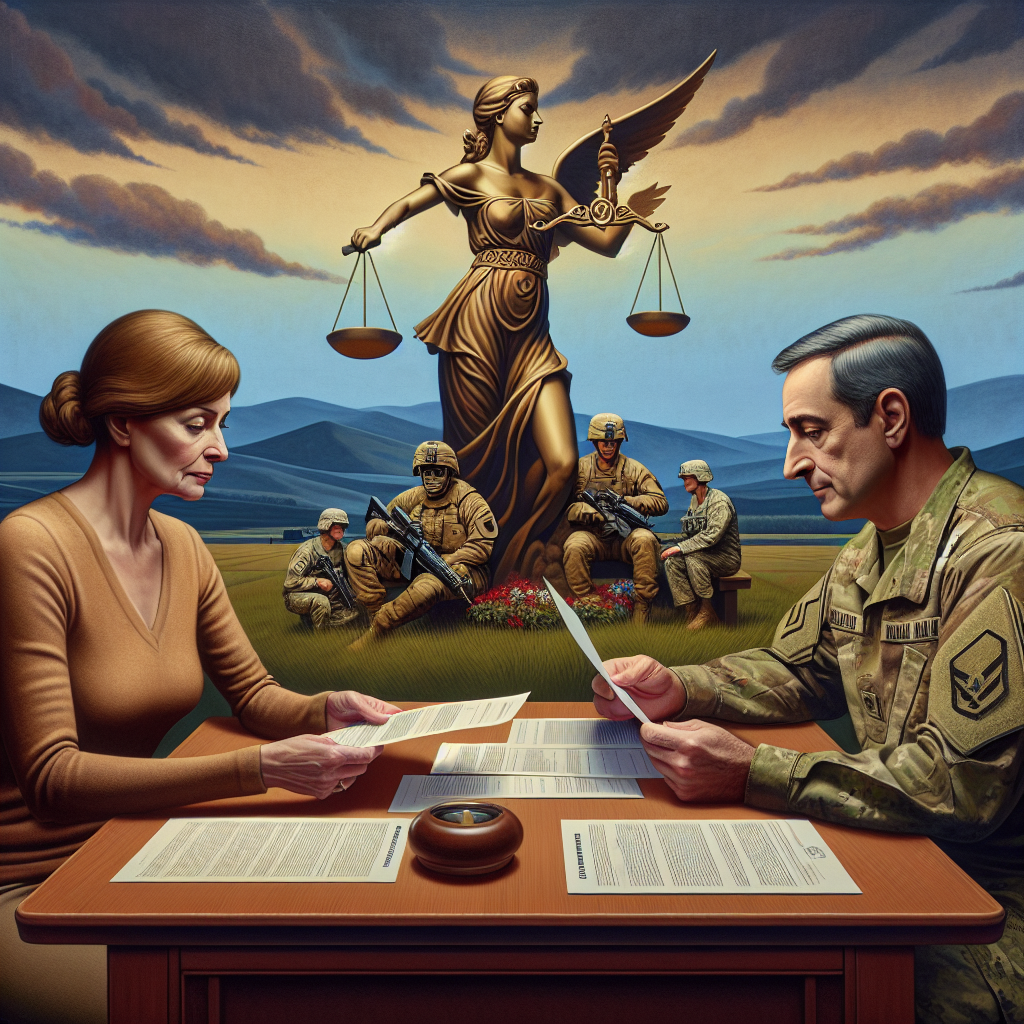Preparing for Mediation as a Military Couple
Mediation for Military Couples: Your Key to Peaceful Resolutions
Introduction
This article will provide information and resources for military couples who are considering mediation as a solution for their conflicts. We will discuss the unique challenges faced by military couples and how mediation can be a beneficial process for resolving these conflicts. It is important to address the specific needs and circumstances of military couples, as their lifestyle and experiences can greatly impact their relationships. Therefore, this article aims to provide guidance on how to navigate mediation as a military couple and achieve a fair and amicable resolution.
Understanding Military Culture
The military lifestyle can have a significant impact on relationships, as it often involves long periods of separation, frequent moves, and high levels of stress. In order to effectively address these challenges in mediation, it is important for mediators to have a strong understanding of military culture and the experiences of military couples. This includes being aware of the unique values, traditions, and norms within the military community.
Mediators who are culturally competent in military matters are better equipped to understand the perspectives and needs of military couples. This can lead to more effective communication and decision-making during the mediation process.
Benefits of Mediation for Military Couples
Mediation can be a cost-effective alternative to the traditional divorce process for military couples. It allows them to control decision-making and maintain privacy, while also avoiding the high costs and potential animosity of a court battle. This can be especially beneficial for military families who may be facing financial strains due to frequent moves and deployments.
Additionally, mediation can help military couples come to an agreement in a timely manner, which is important for those who may have time constraints due to deployments or other military responsibilities.
Legal Considerations for Military Couples
Military divorces are subject to unique laws and regulations, such as the Uniformed Services Former Spouses’ Protection Act (USFSPA) and the Servicemembers Civil Relief Act (SCRA). These laws can have a significant impact on the division of assets and benefits, as well as child support and custody arrangements.
It is important for military couples to seek legal advice before entering into mediation, as mediators are not able to provide legal advice. A lawyer who is knowledgeable about military laws and regulations can help ensure that the couple is fully informed and protected throughout the mediation process.
Addressing Communication Challenges
Effective communication is crucial for a successful mediation process, but it can be particularly challenging for military couples. The stress and frequent separations of military life can often lead to communication breakdowns and misunderstandings. Therefore, it is important for military couples to be intentional about improving their communication skills before entering into the mediation process.
Mediators can also play a role in helping military couples communicate effectively during mediation. This may involve providing guidance and strategies for active listening and effective communication techniques.
Child Custody and Parenting Plans
Military parents face unique challenges when it comes to child custody and parenting plans. Frequent deployments and relocations can make it difficult to establish and maintain consistent parenting schedules. It is important for mediators to be aware of these challenges and work with the couple to create a custody arrangement that is in the best interest of the child.
Mediators can also help military parents develop a flexible parenting plan that takes into consideration the unpredictable nature of military life. This may involve creating a plan for temporary custody arrangements during deployments, as well as guidelines for communication and decision-making while a parent is away.
Division of Military Benefits
Military benefits, such as pensions, healthcare, and housing, can be complex and valuable assets that need to be divided during a divorce. Mediation can be a beneficial process for military couples to negotiate a fair and equitable division of these benefits.
Mediators can provide information and resources to help the couple understand the different types of military benefits and how they can be divided. They can also assist in creating a plan for dividing these benefits in a way that is beneficial for both parties.
Dealing with Trauma and PTSD
Military service can take a toll on mental health, and many service members and their families may struggle with trauma and post-traumatic stress disorder (PTSD). These issues can have a significant impact on relationships and may need to be addressed during the mediation process.
Mediators should be aware of the potential impact of trauma and PTSD on a military couple and provide a safe and supportive environment for them to discuss these issues. They can also refer the couple to resources and support services to help them cope with these challenges.
Creating a Successful Co-Parenting Relationship
Co-parenting can be challenging for any couple, but it can be particularly difficult for military couples who may have to navigate frequent separations and changes in custody arrangements. It is important for military co-parents to prioritize communication and cooperation in order to create a successful co-parenting relationship.
Mediators can provide strategies and resources for building a positive co-parenting relationship, despite the challenges of military life. This may include addressing conflict resolution techniques, effective communication strategies, and developing a plan for handling changes in custody arrangements.
Conclusion
Mediation can be a highly beneficial process for military couples who are facing conflicts in their relationship. It offers a cost-effective, timely, and private alternative to the traditional divorce process. However, it is important for military couples to also seek legal advice and be prepared to address unique challenges such as communication breakdowns, child custody, and division of military benefits.
By understanding the military culture and being aware of the specific needs and challenges of military couples, mediators can help these couples reach a fair and amicable resolution that takes into consideration their unique circumstances. We hope this article has provided helpful information and resources for military couples preparing for mediation and seeking to resolve conflicts in a peaceful and effective manner.




